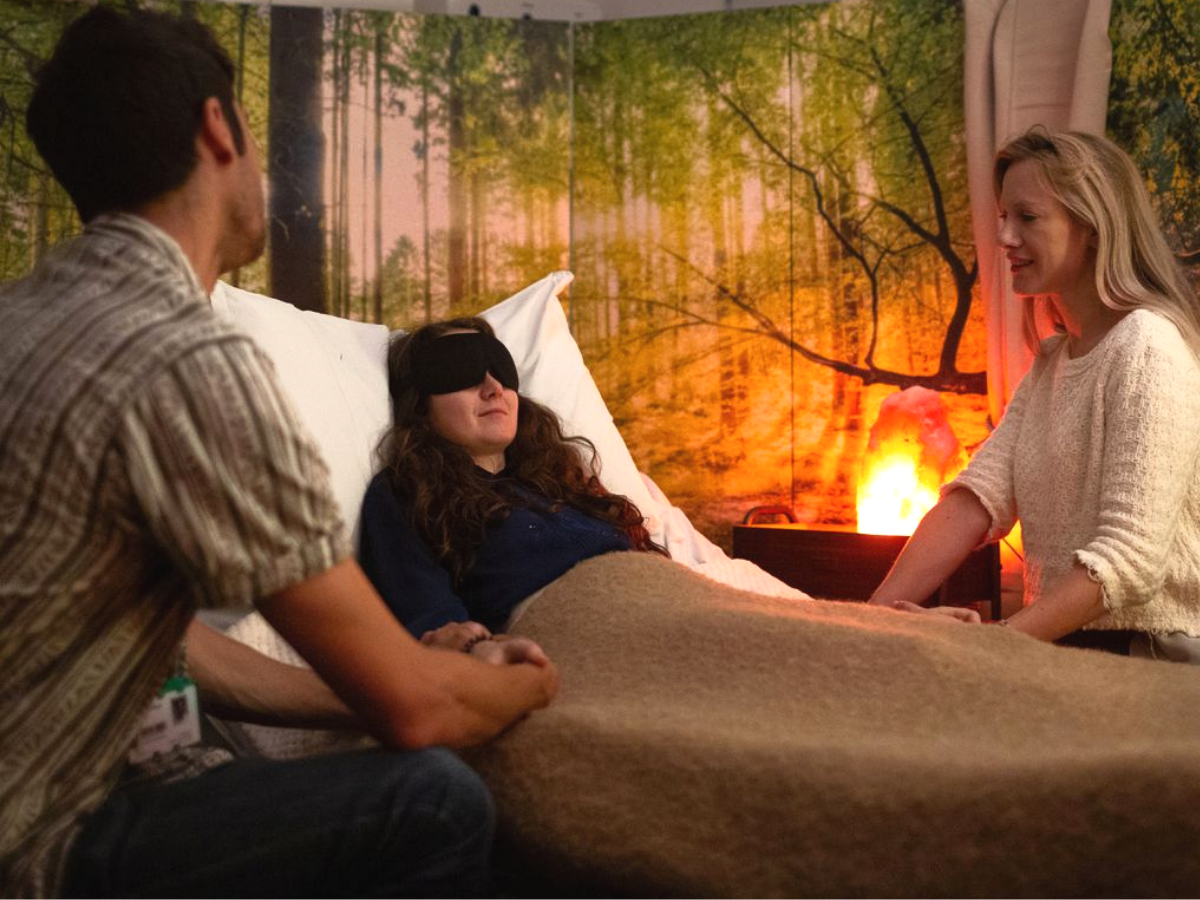Psilocybin is currently classed as a schedule 1 drug, yet the psychedelic compound has recently been found to be useful in the treatment of depression and cluster headaches.
In light of these potential benefits, ‘three world-renowned British psychiatrists have written to Sajid Javid, the health secretary, and Kit Malthouse, the crime and policing minister at the Home Office, urging a rethink’ of its current classification.
Treatment-resistant depression
‘Depression comes in all kinds of shapes and sizes, and mostly people are seen in primary care and they often get treated with SSRIs, the commonest antidepressants,’ commented Dr Guy Goodwin, Chief Medical Officer of Compass Pathways. Compass Pathways is pioneering psilocybin therapy, which combines the pharmacological effects of psilocybin with psychological support. Using a synthesised form of psilocybin known as COMP360, they are trialling this alternative treatment across Europe and North America with promising results.
Typical treatment pathways of SSRIs and classic talking therapy can have modest benefits for many patients, but they are not suitable for everyone – leaving some people without viable treatment options for their depression. Compass Pathways believes that those who have yet to find a suitable treatment deserve alternative options, which is why they are part of the movement urging the UK government to change its stance on psilocybin.
Their initial focus is to explore the use of psilocybin therapy in the treatment of depression that has been resistant to classic treatments – otherwise known as treatment-resistant depression. They are also eager to expand into the treatment of PTSD and Anorexia Nervosa. Their goal is to establish the necessary regulatory pathways to bring psilocybin medicines to patients in the next five years.
Other groups are focusing on the use of psilocybin in the treatment of debilitating cluster headaches. Ainslie Course, a director of the cluster headaches charity ClusterBusters UK, and 160 other people with the debilitating condition have written to the government to urge a relaxation of the classification of the drug. They argue that red tape leaves them stuck between a rock and a hard place: ‘do they break the law to access a medicine that seems to work, or do they accept that the Home Office has consigned them to a life of suffering further preventable attacks?’ Similar to arguments around the medicinal uses of cannabis, they argue that people may illegally seek the drug if they cannot obtain it through legal means – making its illegality potentially dangerous as opposed to limiting the dangers posed by unregulated versions of the drug.
A spokesperson commented that the government is ‘working with the Advisory Council on the Misuse of Drugs to consider whether barriers to legitimate research on controlled drugs – including psilocybin – could be removed.’
Trips vs. treatments
Many people are wary of the medicinal use of something that is typically the active part of an illegal drug. While this concern is understandable, it is worth noting that the synthetic form of psilocybin used in these trials (COMP360) is far more predictable than the naturally occurring version in mushrooms.
Some people are excited to see the typical view of psychedelic compounds challenged: ‘I love it when research defies expectations and teaches us that our current understanding and assumptions are incomplete,’ commented Dr David Feifel, Professor Emeritus of Psychiatry at Kadima Neuropsychiatry Institute.
These trials are wildly different from the Magic Mushroom trips many might expect. A key element of this emerging psilocybin therapy is the support given before, during, and after the experience. Patients attend a preparation session in which they learn what to expect and are able to establish trust with the therapist who will be guiding them through their experience. Following the actual psilocybin experience – which usually lasts 6-8 hours – patients are then encouraged to discuss their experiences with the therapist. The goal of this ‘is for patients, with guidance from their therapist, to generate their own insights and ideas from the experience to change unhelpful emotional and behavioural patterns.’
As previously mentioned, COMP360 is far more predictable than the naturally occurring psychoactive substance found in mushrooms. COMP360 is only to be given in specific regulated doses under the direct supervision of a professional who will guide patients through the experience. Dr Guy Goodwin stressed that, even though COMP360 is more predictable, it is not to be used unsupervised or outside of a clinical setting.
The important part of the experience is not so much the drug itself, but the receptive state it places the patient in which, in turn, enables effective therapeutic discussion and ultimately changed behaviour.
A positive outlook
Recent research from the Institute of Psychiatry, Psychology, & Neuroscience (IoPPN) at King’s College London, in partnership with Compass Pathways, has shown that psilocybin, in 10mg or 25mg doses, has no short- or long-term detrimental effects in healthy people.
With many people struggling with treatment-resistant depression or other mental health conditions which lack adequate treatment options, this promising therapy has the potential to meet a clear unmet need in the population.
The importance of the presence of trained mental health professionals during these experiences cannot be overstated, and the promise of this research must not be seen as justification for people to experiment with such substances outside of carefully regulated clinical settings.
Recent research is only the first step in what is likely to be a very long journey from initial trials to wider access, but it will nevertheless be interesting to see how this promising new avenue of research develops in the coming years.
Recommended for you

Antidepressant Prescribing at Six-Year High
More people are taking antidepressants than ever. Is this a dark sign of the times or an indication that mental health stigma is changing?

Can AI be Used to Determine Cancer Recurrence?
When cancer patients go into remission, they often worry about it coming back. AI can now help identify those at risk of cancer recurrence.

Pegasus – Still a Threat to the UK?
The notorious Pegasus spyware has been misused to exploit vulnerabilities in devices, even those kept within the walls of Number 10.
Trending

Drug Decriminalisation: Could the UK Follow Portugal?
Portugal’s drug decriminalisation has reduced drug deaths and made people feel safe seeking support. Would the UK ever follow suit?

Calling All Unvaccinated UK Adults
With Covid cases rising, the NHS is urging the 3 million UK adults who remain unvaccinated to come forward.





